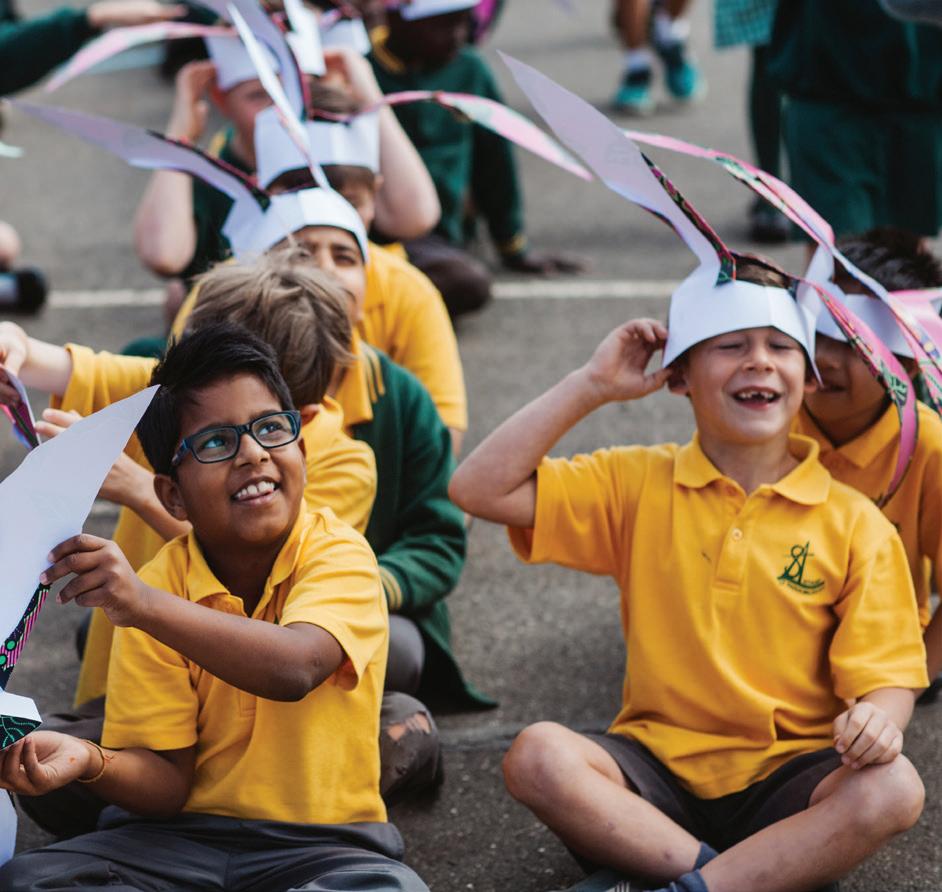
2 minute read
Common Terms
Describing LGBTQIA+ communities
When writing about LGBTQIA+ people it is best to use the term ‘communities’, as these are many separate and distinct communities within this umbrella term. People may fit more than one of these terms. Heterosexual and cisgender people can be part of LGBTQIA+ communities. For example, there are straight trans and intersex people. While LGBTQIA+ communities often work together, for example to advocate for equal rights, they are different communities with their own distinct experiences, needs and priorities.
Advertisement
What if I make a mistake?
People may worry that they will offend or be embarrassed if they use the wrong term, name or pronoun, particularly for trans and gender diverse people.

It’s important to try to use respectful language and some mistakes are understandable, particularly when you are learning. If you make a mistake, apologise promptly and move on. Don’t dwell on it, and don’t give up – keep trying to get it right.
Repeated mistakes indicate a lack of respect, and can be very distressing. If it continues or is deliberate, it could constitute bullying or discrimination which is unlawful.
How should I use pronouns?
Pronouns are one way people refer to each other and themselves. Most but not all men (including trans men use the pronoun ‘he’. Likewise, most but not all women (including trans women) use the pronoun ‘she’. Some people use a gender-neutral pronoun such as ‘they’ (e.g. ‘Pip drives their car to work. They don’t like walking because it takes them too long’).
If you’re unsure what someone’s pronoun is, you can ask them respectfully. Use a question like ‘Can I ask what pronoun you use?’ Do not ask ‘What pronoun do you prefer?’ A person’s pronoun and identity are not a preference. Instead, just ask what pronoun they use. If you provide your own pronouns and make asking part of your practice, it is a signal to the whole LGBTQIA+ community that the space is safe.
Some people’s pronouns may be context-specific. For example, someone might not use their pronoun in a particular environment or around particular people because they do not feel safe or comfortable to do so.
At Arena we include our pronouns in our email signature and in group introductions, such as the start of rehearsals.
Section 5: Goals and Actions
The Arena Board and Management are committed to working towards equity in all our programs and activities. Through the Fair Play program, with the support of Creative Victoria, Arena have developed the following goals and actions, to hold the company accountable to that commitment.
SHORT TERM GOALS = COMPLETED BY END OF 2021 LONG TERM GOALS = COMPLETED BY END OF 2024
Short Term Goal 1
The entire company understands that working with Culturally and Linguistically Diverse, First Nations, LGBTQIA+ and Disabled people is part of the company’s ongoing practice and they feel confident in their ability to support and contribute to these projects.
Action Person Resources Timeline Consultation Evaluation
All staff to receive cultural awareness training from Dja Dja Wurrung trainers
BDAC
Tashara Roberts
Kim Campbell
Rodney Carter
Annual review to ensure all current staff have undertaken training
All staff to receive South Sudanese cultural training to assist with current project
All staff to receive LGBTQIA+ inclusion training
All staff to be made aware of what they need to do to make all communications (internal and external) accessible
Embed training for new staff into policies, staff PDs and inductions
Staff and volunteers from diverse communities feel safe working at Arena, based on feedback through 1-on-1 sessions and external consultation.






